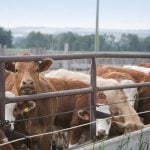Rules are needed about who gets to make the rules on trade and sustainability, says the Canadian Agri-Food Trade Alliance.
“These would be the guardrails,” said CAFTA president Greg Northey about the organization’s “Principles for Sustainable and Fair Trade in Agri-Food Sector,” which it released Aug. 6.
CAFTA and other exporting nations are worried by the proliferation of sustainability related trade restrictions discussed around the world. The European Union is already imposing its rules on others.
Read Also

Key actions identified to address canola tariffs
Federal and Saskatchewan governments discuss next steps with industry on Chinese tariffs
Many countries are considering how to introduce environmental demands within trade agreements or relations.
“We’re seeing a lot of interest from countries around the world to opening up discussions on how sustainability should be addressed within the trading system,” said Northey.
Since the early 1990s, environmental issues have been discussed within the World Trade Organization. However, technical rules have not been added to the mountain of complexities that comprise the WTO framework. CAFTA and others hope to avoid a raft of hard-and-fast sustainability rules.
“The concern is that we might start layering on rules around sustainability, and they become these trade barriers,” said Northey.
The organization’s set of 11 principles highlight the importance of food production and protecting the rules-based and science-based regulatory and legal approach to trade.
They underline the danger of sustainability rules being hijacked to block trade.
“Sustainability measures must not be a barrier to freer and fairer international agri-food trade and should not be used as cover for protectionist trade policies, regulations and measures,” states Principle 4.
The EU has angered trading partners with its attempt to impose its internal rules on non-EU members. Through requirements that some imports from non-EU states follow domestic EU policies, known as “mirroring,” the trading bloc has attempted to extend its rules around the world.
“Sustainable trade policies and trade-related climate measures must recognize that different countries have unique agri-food production conditions, practices and systems and that there is no one-size-fits-all approach for improving sustainability outcomes,” reads Principle 8.
“Legislative, regulatory and policy instruments should be designed to achieve sustainable outcomes, not impose prescriptive requirements, and not unfairly limit or restrict market access nor be applied extraterritorially.”
Northey said CAFTA produced these principles, which most agricultural exporters support, to remind Canada and other governments to avoid flooding trade relations with extra layers of regulations and bureaucracy.
Canada will soon lead the G7 group of nations, so having these principles as a foundation for approaching trade and sustainability might avoid unnecessary snarls, Northey said.
Contact ed.white@producer.com


















